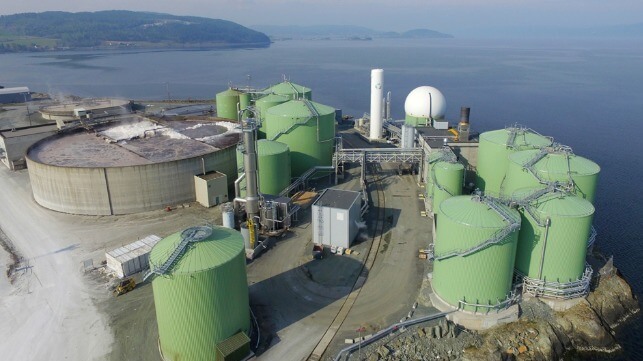Maersk Center: Biogas Shows Promise, But Only if Carefully Managed

The Maersk Mc-Kinney Moller Center has released an upbeat forecast on the future of biogas, suggesting that it could play an important role as a fuel for the green transition - so long as it is carefully managed.
In a year-long study, the center determined that biofuel can be produced at a useful scale using existing technology, and could support decarbonization of shipping - particularly in the early phases of the process. Biogas production and refinement pathways that incorporate carbon capture and storage show promise, and some are even carbon-negative because the feedstock source creates biogenic CO2 uptake (the vegetation absorbs carbon dioxide from the air). However, the technical details of production matter a great deal, and are specific to each industrial site and method.
"We find that the type of biofuel matters less than the optimization level of the production pathway, with optimized value chains able to deliver both LBM and bio-methanol with strongly negative emissions," the center concluded.
One possible operating method for this system would be to use the biogas near the site of its production, then sell the certificate of decarbonized energy activity to a shipping company to offset a vessel's fossil-derived emissions (a book-and-claim system, already in common use for liquid biofuel). If it is to be used aboard a ship as a marine fuel, the least-cost method to get biogas on board is to turn it into the bio-based equivalent of LNG: LBM, liquefied biomethane.
"We find that the standard commercial process to manufacture LBM via upgrading and liquefaction of biogas is the cheapest of the options considered," the center's researchers concluded. "At comparable sizes, SNG and biomethanol are 50%–70% more expensive."

that matters most
Get the latest maritime news delivered to your inbox daily.
The main environmental challenge for biofuel is in "practicing excellence" in controlling unwanted bio-methane emissions from production, transport and use - a familiar issue found today with fossil-based methane fuel (natural gas). Methane is a far more potent greenhouse gas than carbon dioxide, and lifecycle methane emissions must be minimized in order to achieve a climate-friendly fuel system with biogas, according to the center. Leaks during production, distribution and use could "erase the sustainability benefits" of a biofuel value chain, the center warned, and current methane emissions levels suggest a need for improvement in this area. At today's estimated loss rate of 5-6 percent, European biogas infrastructure could leak enough biomethane into the atmosphere to equal 15-45 percent of current CO2 emissions from European shipping. Fuel with this kind of well-to-wake profile might not meet the definition of "sustainable," the center found, depending on how the impact is measured.
"One of the main concerns regarding widespread use of methane as an energy carrier is humanity’s scant track record in avoiding anthropogenic methane emissions to the atmosphere,
which are currently estimated at 350 million tonnes per year," cautioned the authors. "We consider tightening of the regulations in the biogas industry as being of the utmost importance and urgency to ensure that new plants coming into operation have incorporated the right technology to be emissions-free."
